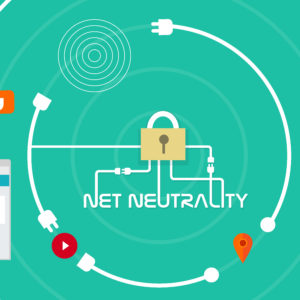There’s been much debate about the economic impact of the Federal Communications Commission’s net neutrality rules since their passage in 2015. But according to one economist, it’s the rules’ reclassification of internet service as a public utility — not net neutrality principles themselves — that’s hurting broadband investment.
And it is hurting investment, just not in the way most economists have measured, according to economist George Ford of the Phoenix Center, a Washington-based, conservative-leaning think tank.
In the near-two years since the rules barring internet service providers (ISPs) like Comcast and AT&T from blocking, throttling, or prioritizing web traffic took effect, supporters and opponents of net neutrality have used ISP revenue, venture capital, and capital expenditures to gauge the effect of the 2015 Open Internet Order on the market.
Former FCC Chairman Tom Wheeler, the Democrat who championed the rules through the agency, said last year that revenue per subscriber went up in 2015, as did venture investment in internet-specific businesses by 35 percent compared to 2014 — the year before the rules went into effect. Meanwhile economist Hal Singer reports capex investment in network growth among the 12 largest ISPs in the U.S. fell by $3.6 billion in 2016 compared to 2014, or 5.6 percent.
In a study released Tuesday, Ford said the rise and fall of capex “says nothing about the effect of a specific regulatory intervention” since they’re determined by many factors, of which regulation is only one.”
“Instead, to determine the effect of a specific regulation on investment correctly, a ‘counterfactual’ is required: that is, how much investment would have occurred ‘but for’ the regulatory intervention?” Ford wrote.
The study estimates what investment in broadband infrastructure would have looked like had the FCC never proposed reclassifying ISPs from an information service regulated by the Federal Trade Commission, to a common carrier service under Title II of the Communications Act (the same public utility designation used to regulate telephone monopolies starting in the 1930s).
Reclassification was first suggested by Wheeler’s predecessor, former FCC Chairman Julius Genachowski, in a May 2010 FCC proceeding that “caught investors by surprise,” Ford wrote.
“The stock prices of broadband providers fell by about 10 percent in the immediate days following the announcement,” he continued. “Between the time Chairman Genachowski first broached the subject of reclassification until the time Chairman Wheeler formally made that change [in] 2015, the industry was on constant alert that reclassification was on the table.”
In the words of then-FCC Commissioner Ajit Pai “the specter” of reclassification hovered “ominously in the background” impacting investment from then on, especially since the Genachowski proceeding never closed.
Ford compared his “what if” scenario to reality and found telecommunications investment between 2011 and 2015 differed from expectations by between 20 and 30 percent, or about $30 to $40 billion annually. Actual investment averaged $126 billion annually, “a sizable expenditure,” Ford said. But according to his counterfactual analysis, average investment over the five-year window would have been about $160 billion “or more” annually.
“That is, over the interval 2011 to 2015, another $150-$200 billion in additional investment would have been made ‘but for’ Title II reclassification,” the study reads.
The study also notes the difference between reclassification and the basic principles of net neutrality, first proposed by the agency in 2005, and notes there was no decline in investment as a result of promoting the principles of the open internet.
“It is reclassification — and not net neutrality principles — that have reduced investment,” the Phoenix Center said in a statement.
The study comes a day before Politico reports FCC Chairman Ajit Pai will debut his plan to overhaul the 2015 Open Internet Order. Early reports indicate he’ll seek to reverse Title II reclassification and return ISP jurisdiction to the FTC. In exchange, he wants ISPs to include the principles of net neutrality in their service agreements, subjecting them to legal repercussions should they be caught violating them.
Before leaving office in January, Wheeler gave a lengthy defense of the net neutrality order, arguing the rules don’t hold up legally without reclassification, as federal appeals courts that struck down the rules two times before implied.
“Blocking, throttling, and no paid prioritization have their statutory justification in Title II,” he said. “Thus, removing Title II also removes these fundamental protections.”
One of the same judges that struck down previous FCC attempts to impose the rules upheld the Open Internet Order when ISPs challenged the FCC in court in 2015. Pai’s plan would take a different approach by leaving enforcement to the FCC, which typically prosecutes violations after the fact, whereas the FCC rules preemptively regulate net neutrality principles.

